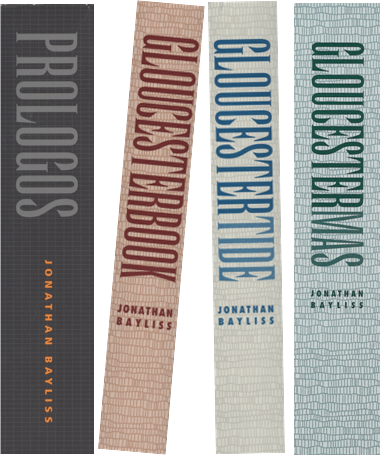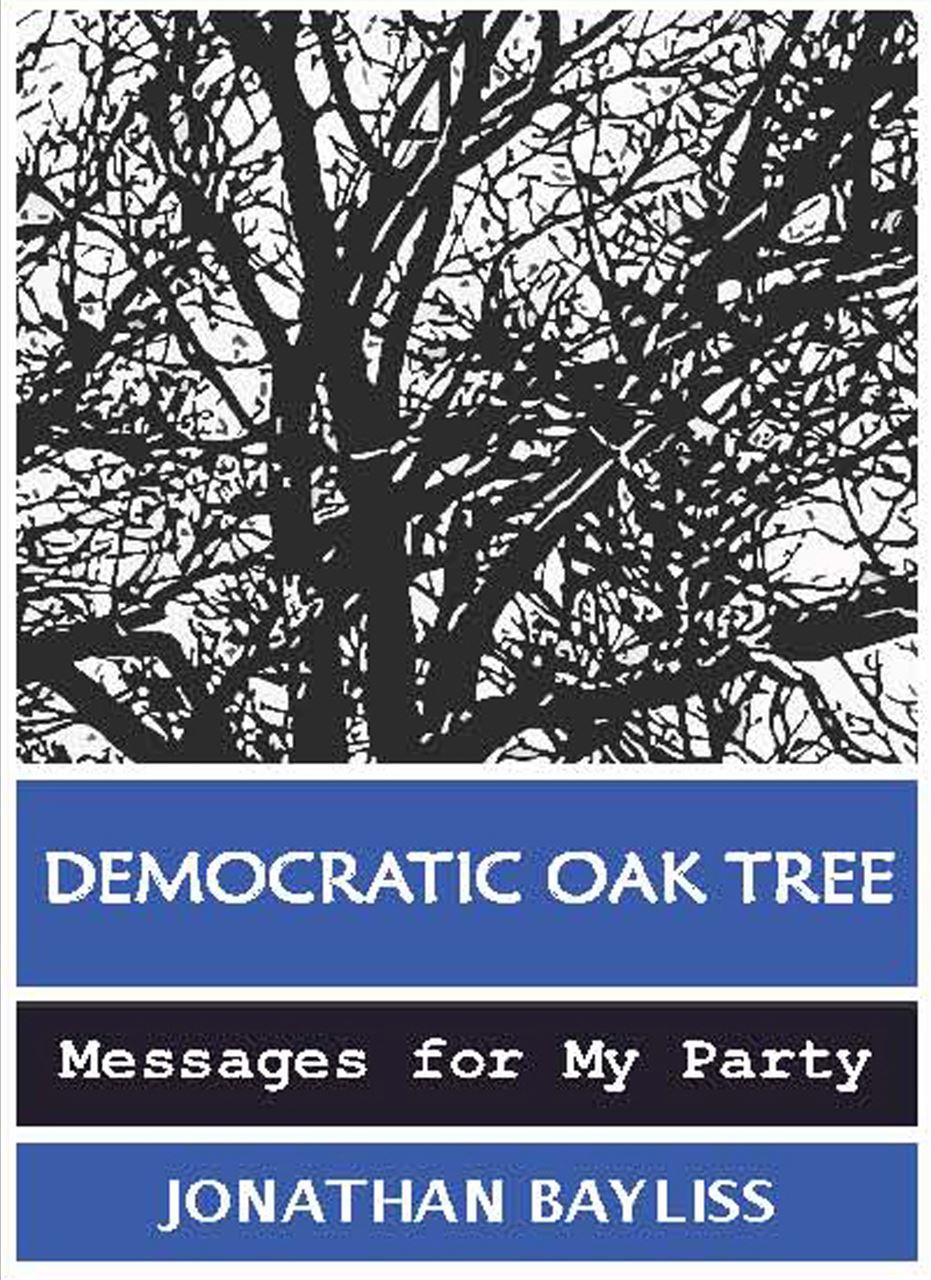Works of Jonathan Bayliss |

GLOUCESTERMAN is Bayliss's groundbreaking fiction tetralogy of the mid-twentieth century. The four expansive, inventive, playful, and thought-provoking novels explore Bayliss’s wide-ranging interests — including history, liturgy, tragedy, systems, nature, engineering, business, railroads, geography, and politics — as well as friendship, love, sex, domestic life, responsibility, and work.
The tetralogy is headed by Prologos, a richly detailed literary masterpiece whose foreground is California’s Bay Area about a decade after the end of World War II. The background is the pre-war East Coast (Depression-era Cambridge, Gloucester, Manhattan) and the wartime and post-war Pacific.
The protagonist of Prologos, Michael Chapman, is the “Controller” of the other three novels. Gloucesterbook, Gloucestertide, and Gloucestermas follow the inner lives of a cluster of friends who live and work during the 1960s and 1970s in the Atlantic Coast’s seaport “Dogtown” on “Cape Gloucester” — the geography that is the backbone of this sprawling, eclectic, unconventional, and stimulating fiction.

Bayliss’s dramatic works, The Tower of Gilgamesh and The Acts of Gilgamesh, take place in Sumer (now southern Iraq), where it is said that civilization began: the first writing, numbering, and accounting systems, and the first literature. Loosely based on the Gilgamesh legend, together the plays form a comedic tragedy exploring — with humor, imagination, and spirited language — ideas about free will, love, creativity, friendship, and religion. These plays, included in the novels Gloucestertide and Gloucestermas, are now available in a separate volume, Gilgamesh Plays.
 Democratic Oak Tree, a collection of Bayliss’s political essays and selected correspondence about politics, was published posthumously. It explains his views on why political parties matter, why citizens should register and vote as Democrats, and what — in a nutshell — Democrats stand for. Democratic Oak Tree includes ten compelling (and still highly relevant) essays written between 1999 and 2006 as well as public letters and personal messages commenting on the major political events and issues of Bayliss’s lifetime, from FDR and the New Deal to Adlai Stevenson’s 1952 run for President to Hillary Clinton’s 2008 campaign.
Democratic Oak Tree, a collection of Bayliss’s political essays and selected correspondence about politics, was published posthumously. It explains his views on why political parties matter, why citizens should register and vote as Democrats, and what — in a nutshell — Democrats stand for. Democratic Oak Tree includes ten compelling (and still highly relevant) essays written between 1999 and 2006 as well as public letters and personal messages commenting on the major political events and issues of Bayliss’s lifetime, from FDR and the New Deal to Adlai Stevenson’s 1952 run for President to Hillary Clinton’s 2008 campaign.
